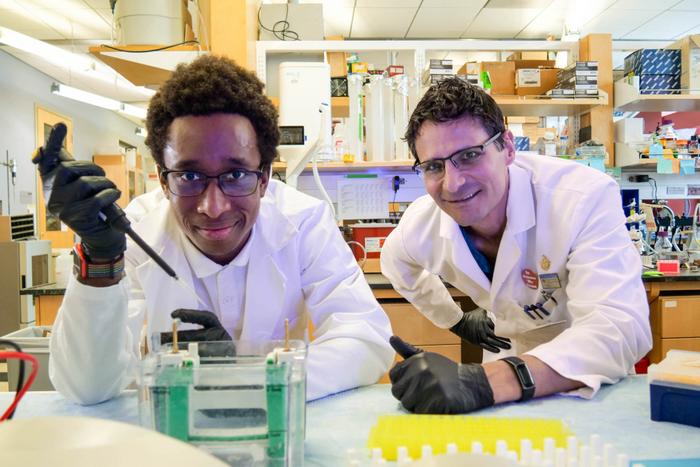Revolutionary Gene Testing Could Prevent 75% of Avoidable Medication Side Effects
A pivotal new study from Queen Mary University of London highlights an alarming trend: around 9% of all reported adverse drug reactions (ADRs) submitted to the UK medicines regulator can be linked to medications whose side effect risks are influenced by a patient’s genetic makeup. The findings emphasize the urgent need for preemptive genetic testing […]


A pivotal new study from Queen Mary University of London highlights an alarming trend: around 9% of all reported adverse drug reactions (ADRs) submitted to the UK medicines regulator can be linked to medications whose side effect risks are influenced by a patient’s genetic makeup. The findings emphasize the urgent need for preemptive genetic testing prior to medication prescription, potentially leading to safer and more effective healthcare management. Dr. Emma Magavern spearheaded the research, revealing that a staggering 115,789 ADRs associated with pharmacogenetic factors were extracted from over 1.3 million reports gathered by the Medicines and Healthcare products Regulatory Agency (MHRA) through its Yellow Card scheme.
This scheme, instrumental in tracking the safety of medications in the UK, has chronicled more than a million instances of ADRs over the past six decades. Alarmingly, previous research indicates that over 99% of the population possess genetic variations that could trigger adverse reactions to specific drugs, leading to severe health consequences, extended hospital stays, or even mortality. Furthermore, the financial implications for the National Health Service (NHS) are substantial, with estimates suggesting that ADRs cost the system in excess of £2 billion annually.
The granular analysis undertaken by Magavern’s team recorded that of the ADRs linked to drugs modifiable by pharmacogenomics, a remarkable 75% were tied to just three genes: CYP2C19, CYP2D6, and SLCO1B1. These genes significantly influence the metabolic pathways helping the body process various medications. The revelations surrounding the type of medications associated with preventable ADRs are equally noteworthy. The highest rates were observed in treatments for psychiatric disorders, accounting for 47%, alongside cardiovascular drugs, which constituted 24% of the preventable reactions noted.
Not only did the study illuminate the inherent risks tied to genetic factors, but it also shed light on demographic patterns among patients experiencing ADRs that could have been avoided through preemptive testing. Specifically, the research indicated a higher likelihood of ADRs in males, the elderly, and individuals experiencing severe yet non-fatal side effects after medication intake. These demographic indicators are critical for healthcare professionals, as personalizing treatment based on genetic information could greatly enhance patient safety.
With clinical trials affirming the positive impact of employing genetic insights to tailor prescriptions—whether through dose adjustments or the selection of alternative medications—this research advocates for the integration of pharmacogenomic testing into standard clinical practices. Such a proactive approach could dramatically decrease the adverse effect burden currently faced by patients and healthcare providers alike, enhancing overall treatment efficacy.
Dr. Magavern articulated the significance of this research by stating the essentiality of understanding historical ADR data on a national scale to elucidate how the implementation of genetic testing could reshape prescribing practices in the UK. There’s a clear call to action for the National Health Service (NHS) to seriously consider the benefits of pre-emptive genetic profiling, which could facilitate safer medication administration.
Co-author Professor Sir Mark Caulfield echoed these sentiments, stressing that with 9% of ADR reports potentially connected to genetic factors, measuring a patient’s genetic makeup before prescribing treatments could be a game-changer in the healthcare landscape. His advocacy for the adoption of genetic testing is backed by the potential to prevent avoidable health complications, thus not only safeguarding patients but also optimizing resource utilization within the NHS.
June Raine, Chief Executive of the MHRA, acknowledged this study as a vital contribution to understanding the nexus between genetic factors and serious side effects. This aligns with the MHRA’s overarching goal of ensuring medication safety and underscores the importance of the Yellow Card scheme, which collects crucial data on side effects from a wide array of sources including patients, healthcare professionals, and the public.
The study not only advances the discussion surrounding genetic contributions to drug safety but also paves the way for a contemporary dialogue on the future of pharmacogenomics in clinical settings. By marrying cutting-edge research with practical healthcare applications, there’s a tangible opportunity to enhance patient safety and therapeutic outcomes.
Moreover, the significance of collaborative efforts between regulatory bodies, healthcare providers, and genetic researchers cannot be understated. Initiatives like the MHRA Yellow Card Biobank, in partnership with Genomics England, hold the potential to transform patient safety measures, as such resources will enable a more tailored and preventative approach to pharmacotherapy based on genetic predisposition.
The overarching narrative is one of urgency and advocacy—an appeal for the healthcare community to embrace genetic insights not just as a scientific luxury but as a necessary component of responsible medicine. The implementation of pharmacogenomic testing in clinical decision-making processes could be the key to unlocking a new era in drug safety, where patients are no longer mere recipients of standardized treatment regimens but rather individuals whose unique genetic profiles inform their healthcare journeys.
Such advancements elicit optimism in a landscape that has often struggled with the unpredictability of drug responses due to genetic diversity. As the healthcare community navigates these transformative waters, this study stands as a beacon of innovation and a crucial reminder of the vital role that genetics can play in refining medicine’s safety and effectiveness.
Subject of Research: People
Article Title: Pharmacogenetics and adverse drug reports: insights from a United Kingdom national pharmacovigilance database.
News Publication Date: 27-Mar-2025
Web References: https://journals.plos.org/plosmedicine/article?id=10.1371/journal.pmed.1004565
References: DOI: 10.1371/journal.pmed.1004565
Image Credits: [Not available]
Keywords: Adverse drug reactions, pharmacogenomics, genetic testing, drug safety, personalized medicine, genetics, adverse reactions, clinical trials, healthcare, NHS, medication management, public health.
Tags: genetic testing for medication safetyhealthcare management and genetic testingimpact of genetics on drug efficacyimportance of preemptive genetic testingimproving patient outcomes through genetic testingmedication prescription and genetic factorsNHS costs associated with ADRspharmacogenetics and adverse drug reactionspreventing medication side effectsQueen Mary University study on ADRsresearch on drug safety and geneticsYellow Card scheme for drug safety
What's Your Reaction?

































